Search Results for: Bears
Skip to resultsCan’t find what you’re looking for? Visit our FAQ page.
6,901 results for: Bears
-
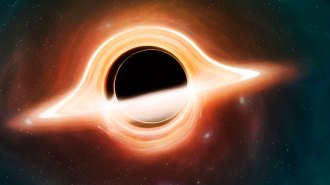 Math
MathHere’s a peek into the mathematics of black holes
The universe tells us slowly rotating black holes are stable. A nearly 1,000-page proof confirms it.
-
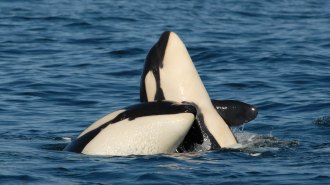 Life
LifeOrca moms baby their adult sons. That favoritism pays off — eventually
By sharing fish with their adult sons, orca moms may skimp on nutrition, cutting their chances of more offspring but boosting the odds for grandwhales.
By Susan Milius -

-
 Climate
ClimateGreta Thunberg’s new book urges the world to take climate action now
Greta Thunberg's ‘The Climate Book’ covers the basic science of climate change, the history of denialism and inaction, environmental justice and solutions.
By Erin Wayman -

-
 Chemistry
ChemistryThese chemists cracked the code to long-lasting Roman concrete
Roman concrete has stood the test of time, so scientists searched ruins to unlock the ancient recipe that could help architecture and climate change.
-
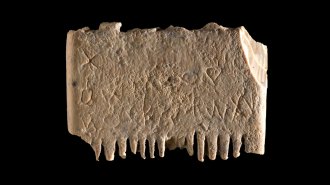 Humans
HumansThis ancient Canaanite comb is engraved with a plea against lice
The Canaanite comb bears the earliest known instance of a complete sentence written in a phonetic alphabet, researchers say.
By Freda Kreier -
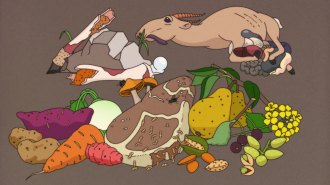 Anthropology
AnthropologyA surprising food may have been a staple of the real Paleo diet: rotten meat
The realization that people have long eaten putrid foods has archaeologists rethinking what Neandertals and other ancient hominids ate.
By Bruce Bower -
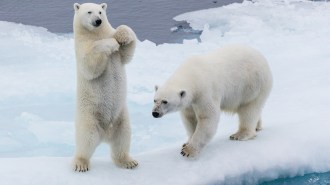 Animals
AnimalsHere’s how polar bears might get traction on snow
Microstructures on the Arctic animals’ paws might offer extra friction that keeps them from slipping on snow, a new study reports.
By Meghan Rosen -
 Earth
EarthIndigenous people may have created the Amazon’s ‘dark earth’ on purpose
Modern Amazonians make nutrient-rich soil from ash, food scraps and burns. The soil strongly resembles ancient dark soils found in the region.
By Freda Kreier -
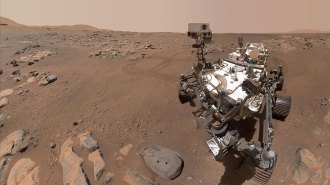 Space
SpaceWhat has Perseverance found in two years on Mars?
NASA's Perseverance rover has turned up volcanic rocks, signs of flowing water and some of the materials necessary for life.
By Liz Kruesi -
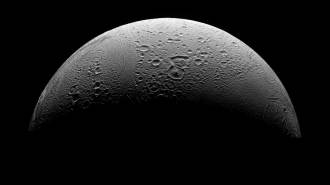 Planetary Science
Planetary ScienceThe last vital ingredient for life has been discovered on Enceladus
The underground ocean on Saturn’s icy moon may contain phosphorus in concentrations thousands of times greater than those found in Earth’s ocean.
By Nikk Ogasa